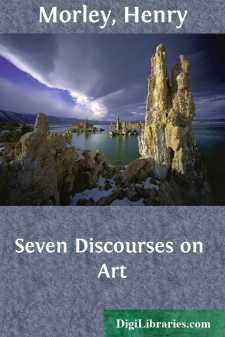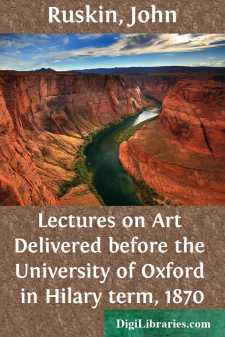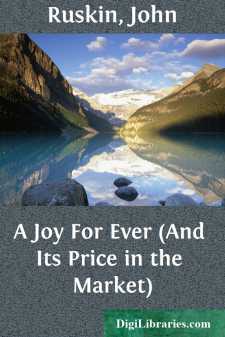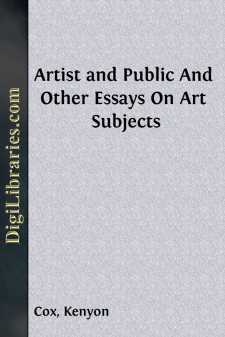Art
- African 1
- Asian 2
- Collecting 1
- Collections, Catalogs, Exhibitions 6
- Criticism 2
- European 8
- General
- History 11
- Middle Eastern 1
- Sculpture 4
General Books
Sort by:
by:
Henry Morley
INTRODUCTION It is a happy memory that associates the foundation of our Royal Academy with the delivery of these inaugural discourses by Sir Joshua Reynolds, on the opening of the schools, and at the first annual meetings for the distribution of its prizes. They laid down principles of art from the point of view of a man of genius who had made his power felt, and with the clear good sense which is...
more...
by:
John Ruskin
PREFACE TO THE EDITION OF 1887. The following lectures were the most important piece of my literary work done with unabated power, best motive, and happiest concurrence of circumstance. They were written and delivered while my mother yet lived, and had vividest sympathy in all I was attempting;—while also my friends put unbroken trust in me, and the course of study I had followed seemed to fit me for...
more...
by:
John Ruskin
LECTURE I. THE DISCOVERY AND APPLICATION OF ART. A Lecture delivered at Manchester, July 10, 1857. 1. Among the various characteristics of the age in which we live, as compared with other ages of this not yet very experienced world, one of the most notable appears to me to be the just and wholesome contempt in which we hold poverty. I repeat, the just and wholesome contempt; though I see that some of...
more...
by:
Kenyon Cox
ARTIST AND PUBLIC In the history of art, as in the history of politics and in the history of economics, our modern epoch is marked off from all preceding epochs by one great event, the French Revolution. Fragonard, who survived that Revolution to lose himself in a new and strange world, is the last at the old masters; David, some sixteen years his junior, is the first of the moderns. Now if we look for...
more...





